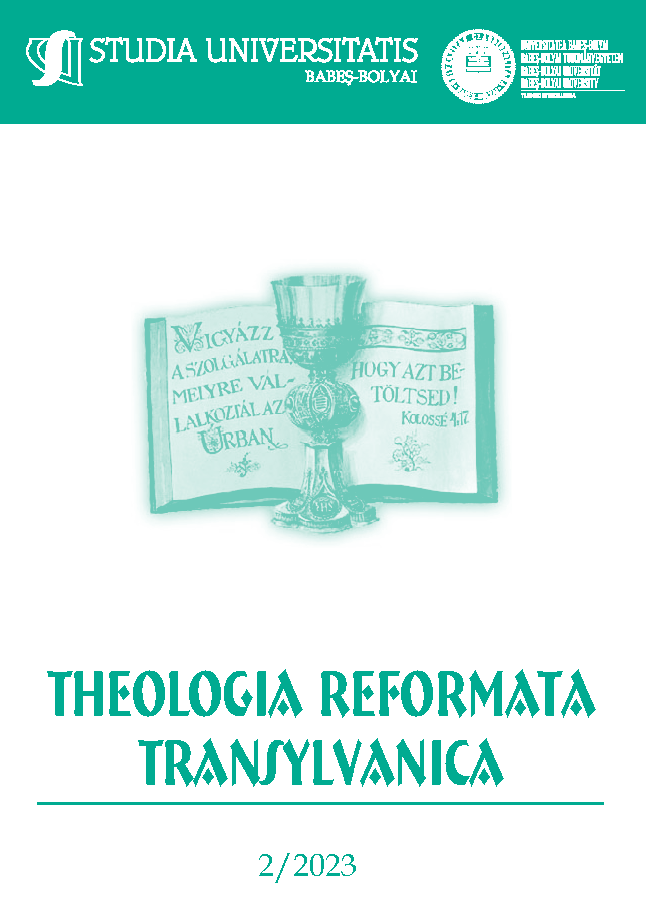A barátságkaraván jelensége és jelentősége az életben
DOI:
https://doi.org/10.24193/subbtref.2023.2.16Keywords:
friendship, socio-cultural environment, network of relationships, dynamics of relationshipsAbstract
The Phenomenon of the Caravan of Friendship and Its Importance in Life
In this academic essay, I invite the reader to think about our human relationships, our friendships: who are the supporters and allies in our lives? How are friendships born and why do they fade away? What do we need to strengthen our friendships and to become people who are seen as supporters by others? The way we make friends throughout our lives depends on our personality, our gender, our age, and our socio-cultural environment. Our network of relationships needs to include family, friends, home, and work. Our network of friends may also change from time to time, for example, when we move to a new place or change jobs. As the distances between connections increase, so do the number of people with whom we can no longer have deeper relationships.
In this paper, we look at the basic dynamics of relationships and how friendship patterns change with age. The paper concludes with a brief theological reflection on friendship.
References
ALBERT Fruzsina (2022): Emberi kapcsolatok – A személyes kapcsolathálózatok szociológiai szempontú elemzése. Debrecen, Debreceni Egyetemi Kiadó.
ALBERT Fruzsina – DÁVID Beáta (2007): Embert barátjáról – A barátság szociológiája. Budapest: Századvég.
ARONSON, Elliot – ARONSON, Joshua (2023): A társas lény. Budapest, HVG Könyvek.
BUDA Béla (2003): Empátia, a beleélés lélektana, In: Fodor László – Göndör András – Vörösné Keszler Erzsébet – Nemenyiné Gyimesi Ilona (szerk.): A kommunikáció alapjai (szemelvénygyűjtemény). Budapest, BGF. 163–202.
BUNT, Andrew (2022): Jesus on Friendship, In: Living Out. 2022.10.25. forrás: https://www.livingout.org/resources/articles/113/jesus-on-friendship.
CLIFTON, Jon (2022a): Gallup Global Emotions 2022. Gallup Press. (2022b): Blind Spot – The Global Rise of Unhappiness and How Leaders Missed It. Gallup Press.
CSEPELI György (2014): Szociálpszichológia mindenkiben. Budapest: Kossuth Kiadó.
CSERMELY Péter (2004): A rejtett hálózatok ereje. Vince Kiadó.
DUNBAR, Robin (2022): Barátok – Hogyan értelmezzük legfontosabb kapcsolataink erejét? Budapest: Typotex.
ELLITHORPE, Anne-Marie (2022): Towards a Practical Theology of Friendship. Wiley-Blackwell.
FELDMÁR András (2007): Közelség–távolság, Az intimitás határai. Előadás. Soteria Alapítvány, Gödör Klub, 2007. október 9. letölthető: https://www.youtube.com/watch?v=g74qiDmk-Qw (utolsó megtekintés dátuma: 2023. szeptember 20.).
FESTINGER, L. – SCHACHTER, S. – BACH, K. (1950): Social Pressures in Informal Groups. New York: Harper.
FUCHS, Thomas (2017): Levels of Empathy – Primary, Extended, and Reiterated Empathy, In: Lux, V. – Weigel, S. (szerk.): Empathy: Epistemic Problems and Cultural-Historical Perspectives of a Cross-disciplinary Concept. Palgrave Macmillan/Springer Nature, 27–47. https://doi.org/10.1057/978-1-137-51299-4_2.
GOTTMAN, John – NAN, Silver (1994): Why Marriages Succeed or Fail – What You Can Learn from the Breakthrough Research to Make Your Marriage Last. New York: Simon & Schuster.
GRIFFIN, Em (2003): Együtt-lét – Mitől jó egy kapcsolat? Budapest, Harmat.
HALL, Jeffrey A. (2018): How Many Hours Does It Take to Make a Friend? In: Journal of Social and Personal Relationships. 36. 4.
HOMANS, George (1961): Social Behavior – Its Elementary Forms. New York: Harcourt Brace Jovanovich.
LEWIS, C. S. (1995): A szeretet négy arca. Budapest, Harmat.
MAFFESOLi, Michel (1996): The Time of the Tribes: The Decline of Individualism in Mass Society. London, SAGE.
NELSON, Shasta (2016): Frientimacy: How to Deepen Friendships for Lifelong Health. Berkely, SEAL Press.
NÉMETH Dávid (2009): A lelkigondozás időszerű kérdései, kihívásai és törekvései, In: Embertárs. 2009/2. 103–110.
NEWCOMB, Theodore (1979): Reciprocity of interpersonal attraction – A nonconfirmation of a plausible hypothesis, In: Social Psychology Quarterly. 42. 4. 299–306.
SCHMIDT, Thomas (2009): Konfliktuskezelési tréninggyakorlatok – Komplett forgatókönyvek tréningvezetőknek. Miskolc: Z-Press.
Downloads
Published
How to Cite
Issue
Section
License
Copyright (c) 2023 Studia Universitatis Babeș-Bolyai Theologia Reformata Transylvanica

This work is licensed under a Creative Commons Attribution-NonCommercial-NoDerivatives 4.0 International License.






